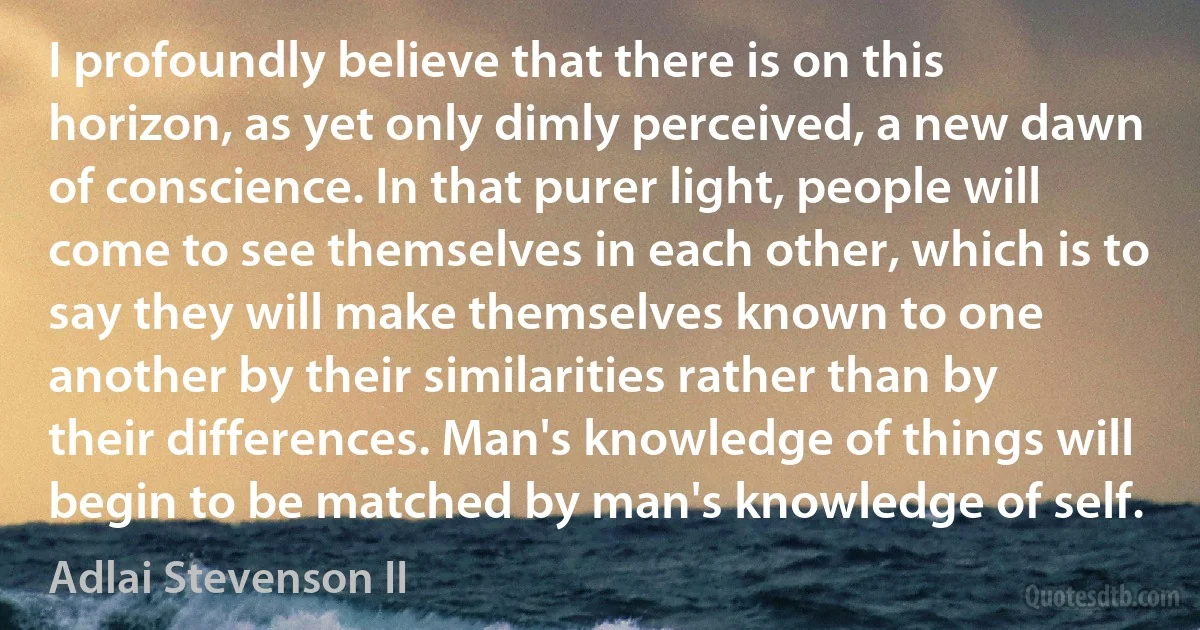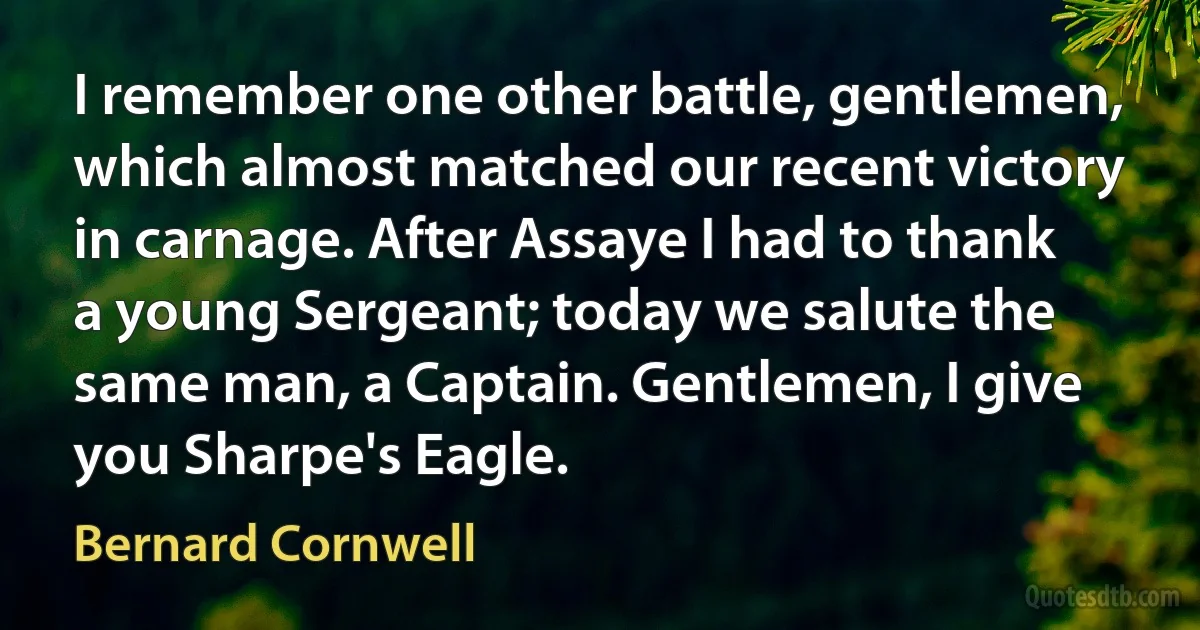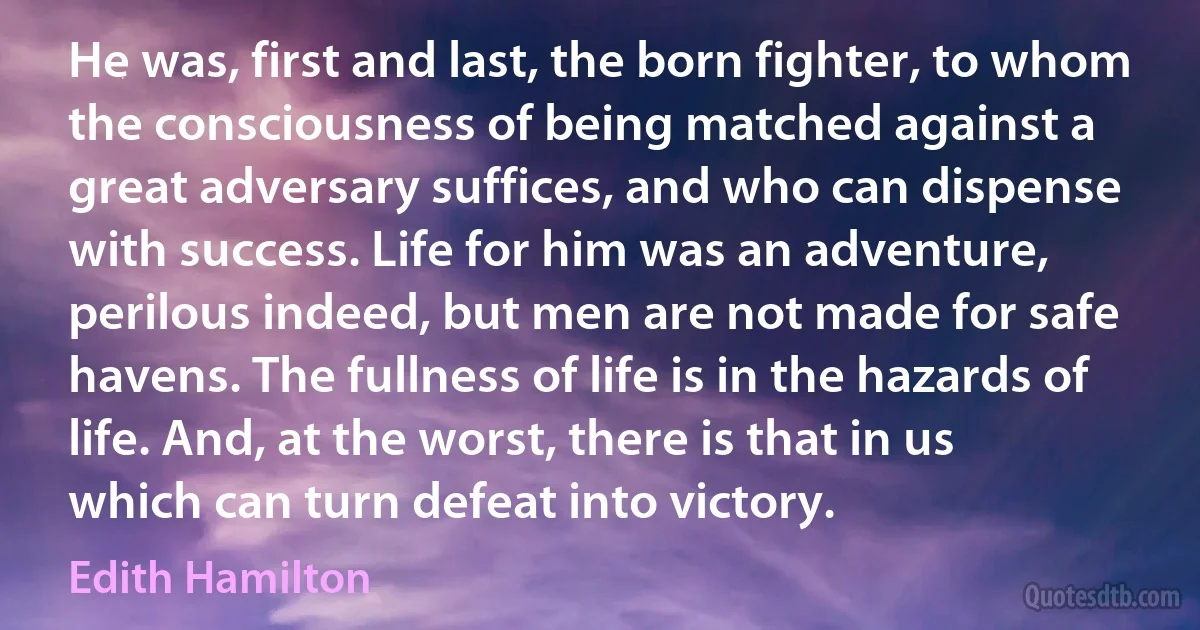Matched Quotes - page 4
In the decades before Zero, the Old Earthers had focused their intelligence on the small and the soft, not the big and the hard, and built a civilization that was puny and crumbling where physical infrastructure was concerned, but astonishingly sophisticated when it came to networked communications and software. The density with which they'd been able to pack transistors onto chips still had not been matched by any fabrication plant now in existence. Their devices could hold more data than anything you could buy today. Their ability to communicate through all sorts of wireless schemes was only now being matched.

Neal Stephenson
Their record has been matched only recently by Communism, considered a Christian heresy by thinkers like Bertrand Russell. In China, the communist regime destroyed half a million Buddhist shrines. (Were the Buddhists there also in the habit of hoarding their gold in their shrines, thus attracting communist expropriatory justice and getting them destroyed in the process? Or was it a rare example of an act purely motivated by an ideology? Probably Stalinist historians of the JNU would like to explain.)

Ram Swarup
Which brings us again, after this long way about, to Jane Austen and her novels, and that troublesome question about them. She was great and they were beautiful, because she and they were honest, and dealt with nature nearly a hundred years ago as realism deals with it to-day. Realism is nothing more and nothing less than the truthful treatment of material, and Jane Austen was the first and the last of the English novelists to treat material with entire truthfulness. Because she did this, she remains the most artistic of the English novelists, and alone worthy to be matched with the great Scandinavian and Slavic and Latin artists.

Jane Austen
"The fact is, there's no such thing as an ultimate state of consciousness. It's a myth; sentience has meaning only insofar as it's connected into the physical world...
If you'd like to see it, here's a view of the Omega Point.” It gestured to open a large inscape window in the sky. Instantly Doran's head was filled with an undifferentiated roar; white noise matched in the window by endless video snow.
Choronzon laughed. "The more information there is in a signal, the more it resembles noise. You're looking at infinite information density, gentlemen, a signal so packed with information that it has become noise. These idiots pushed so far in one direction that they ended up at the opposite pole...
Perhaps the fanatics of Omega Point had gotten their wish, but if so they had been mistaken in thinking that the Absolute was something that hadn't been there all along. Absolute meaning, it seemed, was no different from no meaning at all.

Karl Schroeder
If in the nineteenth century most scholars identified the Ghaggar-Hakra's course with the Vedic Sarasvati, it is basically for three reasons. The Rig-Veda, the oldest of the four Vedas, mentions various rivers but praises the Sarasvati above all others: it was a "mighty river" flowing "from the mountain to the sea", and one hymn listed it between the Yamuna and the Sutlej - precisely the location of the Ghaggar-Hakra. Secondly, the local traditions regarding the "lost river" of the Indian desert matched those in the post-Vedic literature (including the Mahabharata), which recorded the gradual disappearance of the Sarasvati. Thirdly, scholars noticed a minor tributary of the Ghaggar called "Sarsuti", an obvious corruption of "Sarasvati": it rises in the Sirmur hills that are part of the Shivaliks and was marked on British maps as early as in 1788. Putting these three lines of evidence together, they concluded that the lost Sarasvati could only have flowed in the Ghaggar's bed.

Michel Danino
In one of my early books I suggested that the potential significance of LSD and other psychedelics for psychiatry and psychology was comparable to the value the microscope has for biology or the telescope has for astronomy. My later experience with psychedelics only confirmed this initial impression. These substances function as unspecific amplifiers that increase the cathexis (energetic charge) associated with the deep unconscious contents of the psyche and make them available for conscious processing. This unique property of psychedelics makes it possible to study psychological undercurrents that govern our experiences and behaviours to a depth that cannot be matched by any other method and tool available in modern mainstream psychiatry and psychology. In addition, it offers unique opportunities for healing of emotional and psychosomatic disorders, for positive personality transformation, and consciousness evolution.

Stanislav Grof
Today this young woman -The Garbo as she is known - is the most glamorous figure in the whole world; there is no one with a more magnetic, romantic or exotic personality, there never has been a film star with so wide an appeal... Greta Garbo is Queen of Hollywood, her salary is fabulous, her word law. She has pointed features in a round face, her mouth is wide and knife-like. Her teeth are large and square and like evenly matched pearls; her eyes are pale, with lashes so long that when she lowers her lids they strike her cheeks; her complexion is of an unearthly whiteness and so delicate that she looks to have one layer of skin less than other people, and the suspicion of a frown is sooner perceptible.

Greta Garbo
He was the outlier of a new type: the first twentieth-century personality to be famous for being famous. If he toured Africa with 17 pieces of matched luggage, or got hit by a car crossing Fifth Avenue in New York, he wrote about it. His life became a forerunner of reality TV; in today's terms, he did everything to seek celebrity but release a sex tape. A great question of Churchill biography, therefore, is how this Paris Hilton of British politics became the second coming of King Arthur.

Mark Riebling
What is a symbol? Etymologically speaking, the word σύμβολον comes from σνμβάλλω, to throw-with, to make something coincide with something else: a symbol was originally an identification mark made up of two halves of a coin or of a medal. Two halves of the same thing, either one standing for the other, both becoming, however, fully effective only when they matched to make up, again, the original whole. ... in the original concept of symbol, there is the suggestion of a final recomposition. Etymologies, however, do not necessarily tell the truth - or, at least, they tell the truth, in terms of historical, not of structural, semantics. What is frequently appreciated in many so-called symbols is exactly their vagueness, their openness, their fruitful ineffectiveness to express a 'final' meaning, so that with symbols and by symbols one indicates what is always beyond one's reach.

Umberto Eco
The worm stood straight on God's blood-splattered threshold then
and beat his drum, beat it again, and raised his throat:
'You've matched all well on earth, wine, women, bread, and song,
but why, you Murderer, must you slay our children? Why?'
God foamed with rage and raised his sword to pierce that throat,
but his old copper sword, my lads, stuck at the bone.
Then from his belt the worm drew his black-hilted sword,
rushed up and slew that old decrepit god in heaven!
And now, my gallant lads - I don't know when or how -
that worm's god-slaying sword has fallen into my hands;
I swear that from its topmost iron tip the blood still drips!

Nikos Kazantzakis
Organization seemed to be the key. To get huge masses of properly matched men and material to the right place at the right time in the right order with the swiftness required to even grasp survival-to wrestle an infinitely complex and confusing reality into the abstract shape of victory-organization, it seemed, might even outrank courage as a soldierly virtue.

Lois McMaster Bujold



